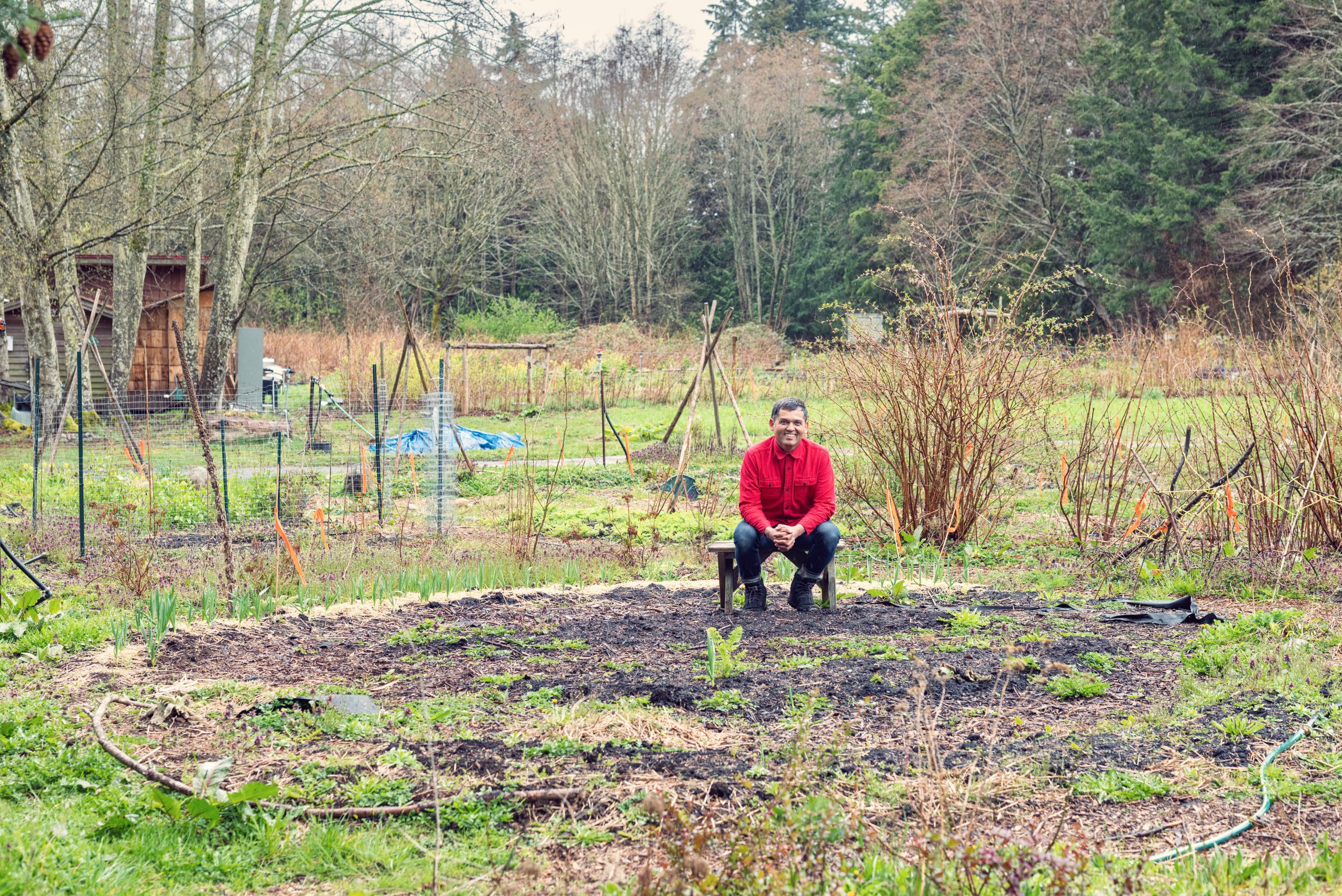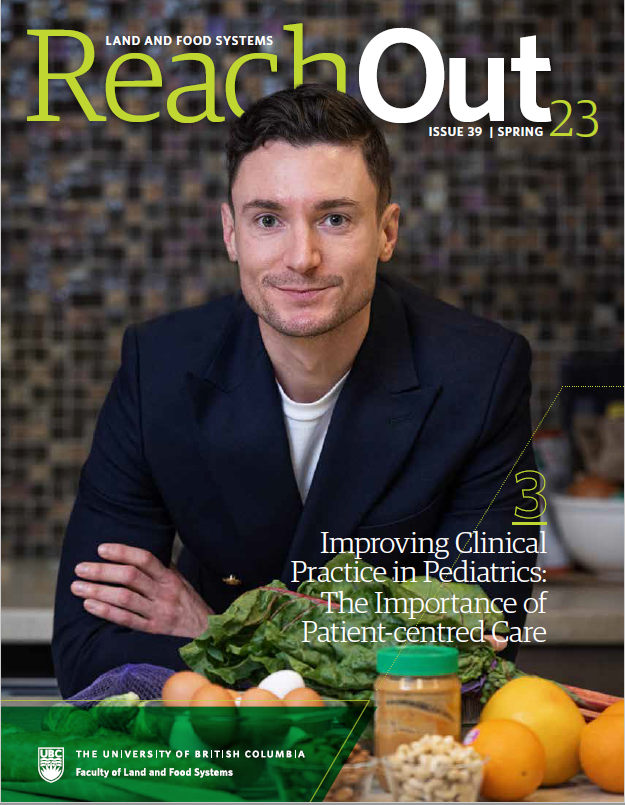Establishing Spaces for Indigenous Land-based Learning
Since publishing this article, Wilson Mendes has sadly, and unexpectedly, left us. We mourn the loss of a dear friend and colleague. If you wish, we invite you to read more about Wilson’s life and legacy here.
In 2021, Associate Professor Dr. Eduardo Jovel established the first ever Indigenous Land-Based Health, Wellness, and Education Research Cluster at UBC. The cluster brings together researchers and educators from different fields across UBC, Simon Fraser University, and University of Victoria to collaborate and address societal and cultural challenges related to Indigenous people’s health, wellness, and education.
Coordinating this new research cluster is Wilson Mendes, who is completing his PhD in Integrated Studies in Land and Food Systems and has extensive experience as an interdisciplinary scholar facilitating conversations between people of diverse cultural backgrounds.

Mendes received his Master of Arts in Indigenous Community Planning from UBC’s School of Community and Regional Planning. During his studies, he completed a professional community planning project with the Yaq̓it ʔa·knuqⱡiʾit (Tobacco Plains Indian Band from the Ktunaxa Nation) where he supported the Comprehensive Community Planning (CCP) process for eight months.
His PhD research looks at how land-based education and Indigenous food system practices are essential for decolonization efforts. This involves engaging with land, food, culture, and community to promote the health and wellness of Indigenous communities, especially in urban areas.
Mendes’ knowledge of food as medicine is deeply influenced by his multicultural heritage. He grew up in Aquidauana, a small town in the midwest region of Brazil, and inherited a rich ancestry that includes Terena, Mozambican, and Portuguese roots. This diverse background has given him a profound understanding of how food can be used to promote health and wellbeing.
“As someone with an Indigenous background, I have always been deeply fascinated by Indigenous land-based practices, specifically around food. Through my community-based research and activism, I am driven to explore the transformative potential that Indigenous food systems can offer in decolonizing our current food system. I firmly believe that Indigenous food practices have much to teach us about sustainability, community building, and the relationships between humans and the environment.”
His research builds on Dr. Alannah Young’s research on land-based pedagogies. As a research associate in LFS, Dr. Young works at the xʷc̓ic̓əsəm Garden (Indigenous Health Research and Education Garden) with the Indigenous Medicine Collective, in partnerships with local Indigenous Elders. While her doctoral research interviewed Elders in her community outside of the city, Mendes’ research focussed on Indigenous youth in urban spaces.

Mendes interviewed 13 urban Indigenous youth on their land-based learning experiences at three Indigenous Gardens at the UBC Farm:The xʷc̓ic̓əsəm, Tal A’xin, and Tu’wusht garden programs. The interviews involved youth participants from diverse urban Indigenous communities beyond North America.
Through their participation in Indigenous ceremonies within their garden programs, the youth were able to reconnect with their identities in a powerful way. For many of these youth, it was their first experience of this kind.
Mendes’ findings show that Indigenous land-based programs are essential for promoting the overall health, healing, and cultural identity of urban Indigenous youth by facilitating reconnection to Indigenous knowledge, land, food, culture, and community.
According to Mendes, establishing culturally relevant and safe spaces, such as the three gardens, can help to address the multilayered effects of colonization: “By creating spaces where Indigenous knowledge and practices can be shared and respected, Indigenous peoples can reclaim their self-determination and promote cultural revitalization.”
Mendes also acknowledges the challenge of creating similar spaces in big cities. To contribute to this conversation, he developed a framework of five pedagogical guiding elements. “This framework aims to promote collaborative land-based education program development and delivery between Canadian settler society and Indigenous peoples and communities in
urban spaces,” explains Mendes. “It can also inform the development of relevant Indigenous health promotion policies, practices, and programming for urban Indigenous youth.”
The framework highlights the need to move away from cultural competency, being aware of cultural values and beliefs, and towards cultural safety, which involves recognizing systemic inequalities and power imbalances within land-based program development and implementation. Mendes sees his role as supporting this process at UBC, working with faculty, staff, students, and external partners.
Tagged with: 2023, Equity Diversity Inclusion and Indigeneity, Faculty, Indigenous
